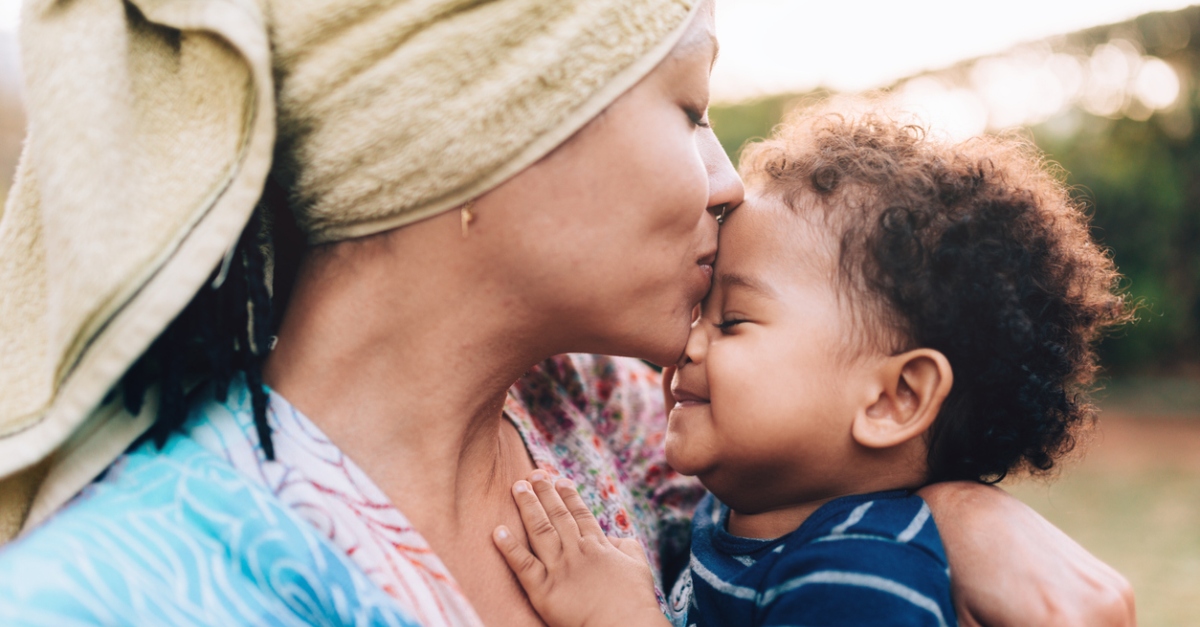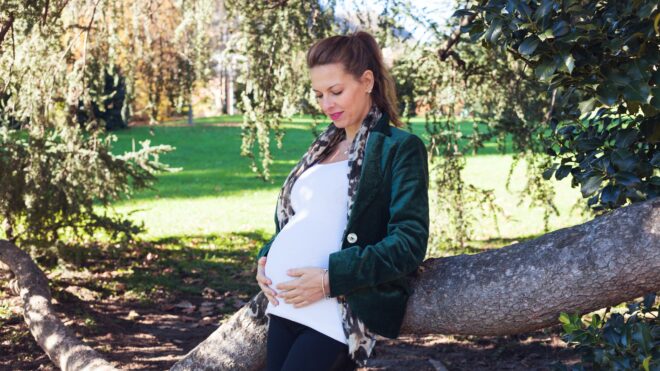
When we think about having a child later in life, we begin to wonder if it's too late to become a mother. With each generation, women size up their place in culture and society and use these frameworks to redefine milestones of adulthood and the value of mothering. Back in the Middle Ages, being a teen mom was ideal — today, maybe not so much. Time is relative. And whether you met your partner later in life, had difficulty conceiving, or circumstances led you to raise someone else’s child, just remember that becoming a mother later in life comes with the same mixed bag of joys and worries as it does at any age. But if you still feel like you’re late to the party, here are a few pieces of advice to help you get by.
What does mothering later in life even mean? The average age of women in the US who have their first child is 26. But we know that number has increased with each passing decade. And many of us have had to grapple with our parents’ or grandparents’ ideas about when is the best time to become a mother. So often, the anxieties we feel around motherhood and timing are shaped by social and cultural values. And yes, the biological clock is real. Age is one of the most important determinants of fertility.
But these factors also collide with other social expectations, like a higher level of education and meeting increased costs of living. Not to mention the fact that social media enlarges the perception that personal freedoms like traveling and expanding our culinary palate are also important markers of adulthood. I mean, if you haven’t backpacked through Europe or South America, are you even a fully formed adult? That’s a joke, by the way. But the expectation that women meet these lofty markers of adulthood before having children is real, and the pressure is exhausting.
Maybe you never did subscribe to these shifting social expectations, and motherhood was simply thrust upon you while you were busy being 40 and fabulous, or reveling in retirement. The philosophical teachings of Tom Hanks are all too relevant here. Life is indeed like a box of chocolates. What grandmother expects a tragic accident or life circumstances to result in raising a grandchild? Who expects to meet their soulmate while reaching for the same loaf of fiber-rich multiseeded bread — an act certainly associated with maturity cultivated in one’s later years?
Whatever the reason for arriving at motherhood later than society deems appropriate or doctors consider advisable, the fact remains that there are tons of benefits here that deserve airtime.
Older moms have smarter kids.
Fully acknowledging risks associated with advanced maternal age and pregnancy, studies also show that there are many benefits to children of older mothers. One benefit is that children born to women who are 35 and older may be smarter. Older mothers tend to be more educated, and the correlation between a parent’s education and a child’s language skills as well as academic performance is strong.
Mature moms have safer and healthier kids.
Raise your hand if you look back at your teens and 20s and cringe at your life choices. Maturation often comes with trial and error. So by the time you reach your 30s and 40s, you may have foregone your party days in exchange for a greater sense of stability, responsibility, and personal acceptance. Older moms extend these benefits to their children, too. A 2012 study in the UK showed that children of mature mothers saw a reduced risk of injury, reduced likelihood of hospital admission, and increased health and development.
Raising grandchildren can lead to a healthy lifestyle.
An American Association of Retired Persons (AARP) study says, “An estimated 3 million older adults are raising their grandchildren.” While these family arrangements may come with worries over diminishing energy levels, being out of touch with grandchildren’s interests, and health concerns related to advanced age, there are plenty of bright spots. A 2001 study showed that, depending on living conditions, custodial care of grandchildren often “leads to a more active lifestyle, healthier meals, or a reduction in smoking. Some grandparents feel that caring for their grandchildren makes them healthier and more active.”
Coping with mature mothering

While being an older mother comes with benefits for the whole family, it’s important to note the hard work that goes into turning these circumstances into positive experiences. One of the most important pieces of advice is to take care of yourself. Advanced age can bring on health issues, and looking after your own health and mental well-being is important for you and your child.
Another piece of advice is to stay in the know. The digital age comes with a whole new set of dangers, and as with any form of socialization, kids need parental guidance. You know those memes about parents and grandparents who demonstrate aversion or confusion when it comes to all things tech? Well, try not to be that person. Know what your kids are looking at, set some ground rules, and keep the lines of communication open.
Lastly, foster mutual interests. Whether it’s painting with your toddler or rehearsing your TikTok challenge with your tween before posting, create pockets of interest that you and your child can enjoy. Not only are these moments fulfilling, but they can help engender trust, bonding, and closeness that can sometimes be challenging to cultivate with a broad age gap between caregiver and child.
Putting things in perspective
Isn’t it all about gratitude in the end? The benefits of parenting at any age far outweigh the judgment and stigma society tries to impose on mature mothers. Don’t let a numerical value dictate your right to joy in parenting or caregiving. Whenever you feel discouraged or vulnerable, simply invoke the immortal words of late singer Aaliyah, “Age ain’t nothing but a number.”







